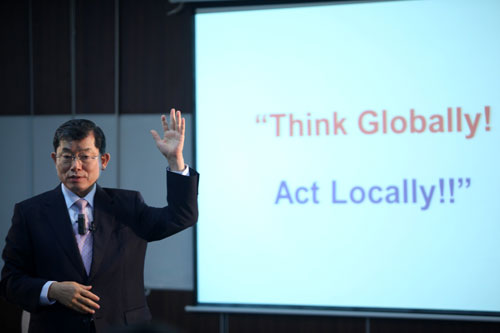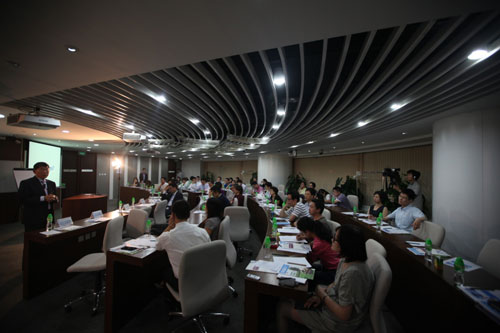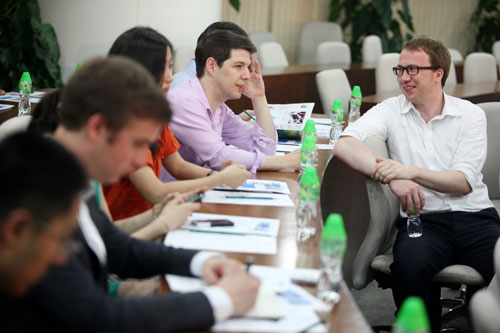Mr. Moon Kook-Hyun, former CEO of Korea-US joint venture Yuhan-Kimberly, illustrates the importance of understanding the local market.
Beijing, July 26, 2012– Localizing products and services is increasingly a do-or-die proposition for businesses. Few have a better understanding of this than Mr. Moon Kook-Hyun, who spoke at CKGSB’s campus in Beijing last week. For twelve years Mr. Moon was CEO of the Seoul-based joint venture Yuhan-Kimberly (Y-K), a leading South Korean personal care products company. At the time Mr. Moon took the helm at Y-K, the company was floundering in competition against Proctor & Gamble’s globally integrated research and development, marketing resources and supply chains. However, as he explained to the audience at CKGSB on July 17, rather than undertake the impossible challenge of replicating P&G’s global strengths, he instead made them weaknesses. He achieved this by tirelessly developing products and public service campaigns tailored to the South Korean market. Through effective localization of both products and corporate governance, Y-K soon surpassed P&G as market leader, taking 60% of the market for key products, trumping P&G’s 10%.

Following an introduction and evaluation of global business strategies from CKGSB Professor Cho Dong-Sung, Moon elaborated on the success of Yuhan-Kimberly while he was CEO. A major factor in Y-K’s success was their localized research and development. They forced P&G out of the market for disposable diapers by developing of products that met the specific needs of the South Korean market. These included products such as their Huggies diapers, the breathability of which reduced the occurrence of rashes. Though breathability came at the cost of reduced leak control, this was not a major concern to Korean consumers, as Korean homes usually have wooden floors, as opposed to the carpeting frequently found in American homes. Products were also developed to include more compact packaging, a feature that proved popular in Korea, where homes are often smaller and storage space limited. Y-K successfully replicated this localization across many product lines.

In addition to focusing on the market needs of Korea, Mr. Moon also focused on the country’s social needs. A company must demonstrate its commitment to practicing social responsibility in ways that are relevant to a local community, said Moon. During his tenure at Y-K, he initiated projects such as “Keep Korea Green”, planting 1.5 billion trees in Korea, as well as education and training for Y-K’s staff. As a result of Y-K’s successful products and localized CSR strategy, the company was able to reduce marketing and PR costs reduced from 15% of revenue to 7%.

This successful, locally developed strategy has been applied to Y-K’s operations in Asia, where similar, socially conscious management is responsible for efforts to combat Chinese desertification by planting 1.5 billion trees over a five-year period. Moreover, successful products developed as a result of local market research, such as the new Huggies, were found to have Asia-wide appeal. Successfully exporting both products and CSR practices within Asia is an achievement that cannot be claimed by many big multinationals.
Finally, Mr. Moon spoke briefly about his career in South Korean politics during a Q&A session at the end of the event. He confirmed that he will not be running again in the presidential election, following his unsuccessful campaign in 2007. He also drew a comparison between business and politics, stating that good management is an essential skill in both.
The event gave an insight to the value of ethical business management and giving back to the community. Keeping giants Proctor & Gamble out of the market is no ordinary feat, which is why the leadership of Mr. Moon Kook-Hyun at Yuhan-Kimberly is so remarkable, and exemplifies the advantages of approaching globalization with a localized strategy. Furthermore, the fact that this localized approach can be exported and used as model for global operations proves its strength and diversity.
For information on future events, view our Events Calendar.



